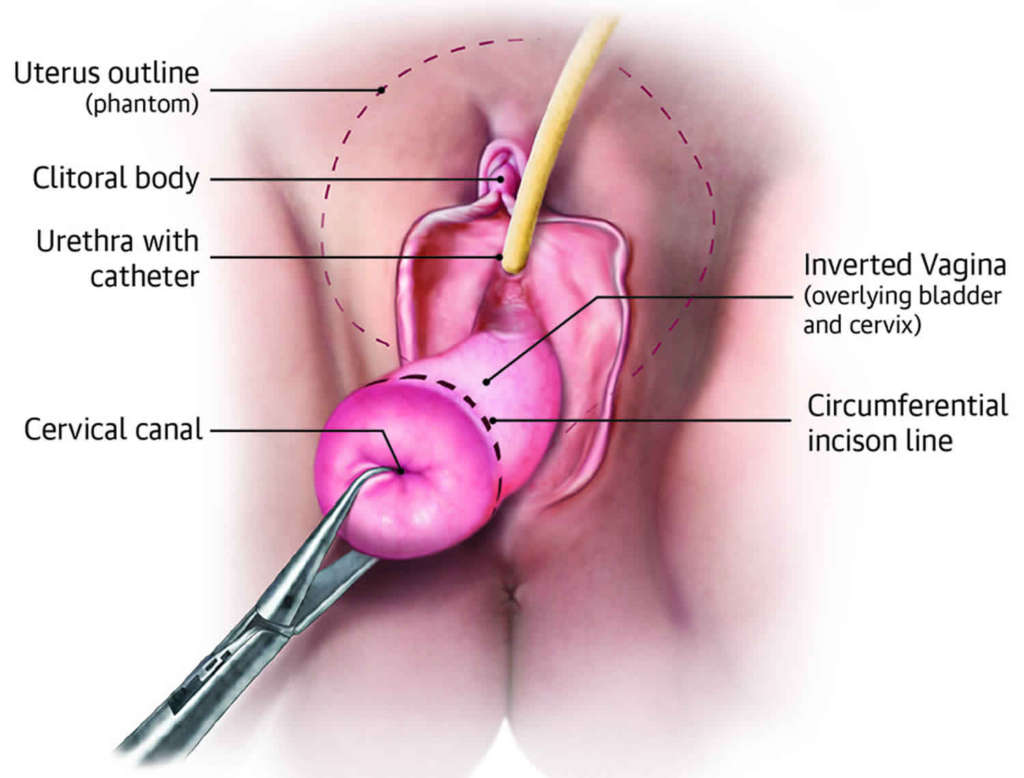Remedies for Side Effects of Hysterectomy
While a hysterectomy is irreversible, patients can undergo procedures and medications at Antai Hospital, to remedy the side effects.

Centers for Disease and Prevention estimates that 600,000 women receive hysterectomy per year in the United States alone. Most women undergo a hysterectomy to put an end to their chronic pain from reproductive health problems. Hysterectomy is a major, life-changing procedure. However, patients often underestimate the impact of a hysterectomy and later found it extremely challenging to live with the side effects.
A hysterectomy can be done via the vagina or via the abdominal cavity using minimally invasive techniques. While a hysterectomy is irreversible, patients can undergo procedures and medications to remedy the side effects.
Side Effect 1: Urinary Incontinence
Treatment: Transobturator Tape (TOT) Sling Procedure.
A TOT Sling Procedure is currently the best for treating urinary incontinence. A mesh tape will be secured under the urethra to provide support. It is a short and straightforward procedure that usually only requires local anesthesia. Hospitalization is not required, and patients will experience little to no side effects.
Side Effect 2: Stress Incontinence
Treatment: Bladder Posterior Wall Support.
Since the uterus is no longer there to support the bladder, the bladder will start leaning backward. Patients will have stress incontinence, where they will leak urine from physical movements such as coughing and sneezing. Antai hospital will place a regenerative tissue matrix (再生组织基质) via 3D laparoscopy. The regenerative tissue matrix is a biological patch. It fills the space and acts as a support so that the bladder can return to its original position.
Side Effect 3: Constipation
Treatment: Anterior Rectal Wall Reinforcement.
Hysterectomy can lead to rectal prolapse, where the last part of the large intestine becomes out of place because the uterus is no longer there to support the intestines. Patients will experience chronic constipation. A biological patch can also be placed at the anterior of the rectal wall for support and position the rectal back in place. This procedure is only available at Antai hospital.
Side Effect 4: Vaginal Prolapse (Painful Intercourse)
Treatment: Vaginal Vault Suspension
During a hysterectomy, the top part of the vagina will also be removed, leading to painful intercourse. A vaginal suspension can be done by securing the vaginal to the pelvic bone. This will lengthen the vaginal canal, and it is effective for the reduction of painful intercourse.
Side Effect 5: Pelvic Organ Prolapse
Treatment: Pelvic Floor Reconstruction
A pelvic organ prolapse is one of the most dangerous side effects of hysterectomy. For a woman, the uterus is the center of her pelvis. Once the uterus is gone, the pelvic organs will start drooping against the vaginal top. The rectum and vagina are part of pelvic organs as well. It will also cause urinary and constipation, as mentioned above. The patient will require a pelvic floor reconstruction to restore the pelvic structure. This surgery can even correct the side effects mentioned above. However, this is major surgery and is usually reserved for more severe pelvic organ prolapse cases.
Side Effect 6: Premature Menopause
Treatment: Hormone Replacement Drugs
After a hysterectomy, a premature menopause will happen very quickly. Patients should consume hormone replacement drugs according to what they lack and how much they lack. Take note that patients should not over-supplement the hormones. Homeostasis
Side Effect 7: Depression
Treatment: Medications and Counselling
Not only will patients suffer from many physical side effects, but they will also undergo emotional turmoil. Many patients end up with depression after a hysterectomy due to the stress they go through. Depression should be taken seriously, and patients must take the appropriate medications. It is also recommended that patients receive counseling and reach out to their loved ones and doctor for help.
Seek Help
After a hysterectomy, patients might be relieved from the pain caused by reproductive health problems, but they end up with much more chronic conditions. Antai hospital understands the severity of a hysterectomy, and we are here to help. Feel free to reach out to us for more information.
Please click here to read about how Antai hospital’s 414 surgical therapy system effectively treats benign reproductive diseases without the need for a hysterectomy.
Get in touch with us today!